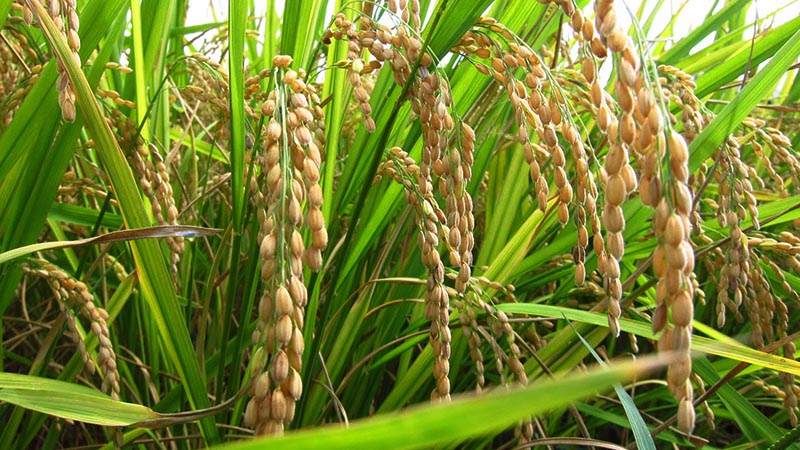Central monitoring for stable rice market

Experts said that a centralised monitoring body, Paddy Management Institution (PMI), is urgently required for stabilising the country's rice market. According to experts, paddy market has become unstable due to the extreme crisis in rice management which includes unplanned production, collection, marketing and processing of the staple.
Currently, due to lack of planned buying, collection, storing and selling of paddy, farmers rarely make expected profit from their produce. Such a situation discourages farmers as many of them have already switched to other professions. To overcome this crisis experts, after analysing the crisis, suggested that there is need for a centralised monitoring institution so that price of rice remains stable all through the season.
Although the government has established separate institutions for the development of agriculture including agricultural extension, agricultural development, agricultural research, rice research, agriculture marketing, seed certification, soil, jute research and horticulture development, there is no specific institution for price management.
Agriculture experts now strongly feel that there is a need for central control to supervise production, collection, storage and sale. This requires professional management as an institution. To stabilise the market, the rice import will have to be stopped completely at this time and supply must be reduced, the experts said, adding, unplanned supply of this commodity destabilises the price.
On May 19, Finance Minister AHM Mustafa Kamal announced a ban on import of rice. On May 22, two days after the minister's announcement, the duty on rice import was doubled. Agriculture Minister Abdur Razzak and Food Minister Sadhan Chandra Majumder also expressed their views against the import of rice.
According to the direction of finance minister, there is no barrier to importing rice. Anyone can import rice if they pay the additional duty and tax imposed by National Board of Revenue (NBR).
According to experts, the government will have to issue a statutory order to stop rice import completely for a specific time, during the crisis of the farmers. Otherwise, the crisis of the farmers would be exacerbated, they feared. Transparency International Bangladesh (TIB) Executive Director Dr Iftekharuzzaman said, “Keeping the issue of production, collection, storage, marketing and export of rice in mind, the government will have to prepare long-term national strategy. In this case, the opinion of the representatives of the farmers and the concerned experts should be taken.”
He continued, “There has been a huge amount of rice production but due to the lack of policies, paddy cultivation may drastically fall. An emergency Paddy Management Institution (PMI) may have to be established to stabilise the country's paddy market." He also said that rice import should be completely stopped in this situation. The government may issue a ban on rice import for a specific period. A group of traders make profit during the time of national crisis. The government will have to be cautious about this.
Asked whether any recommendations have been sent to the commerce ministry to stop the import of rice during the emergence of food, Food Minister Sadhan Chandra Majumder said that in this case, the commerce ministry can decide independently and act independently and that no recommendation is required from food ministry in this respect.
According to Bangladesh Post investigation, per maund (about 37 kg) of paddy is being sold at Tk 500 to Tk 600 in different districts. However, the cost of production of per maund is between Tk 700 and Tk 800. Farmer Lal Mia of Dinajpur told this correspondent that he planted boro paddy on 15 bighas of land. He had spent about Tk 12,000 for each bigha. He got about 19 maunds of paddy per bigha. This shows he suffered a loss of about Tk 1,000 to Tk 1,500 per bigha, which accounts for a total loss of minimum Tk 15,000 to Tk 22,500 from his total paddy production on 15 bighas of land.
He said, “If the government do not stop import of rice, farmers will not cultivate paddy in future.” Kurigram’s farmer Abdul Halim said that he cultivated paddy on 10 bighas of land taking loan from a local NGO. Although he had hoped of a reasonable good profit, in the end he realized that he actually made a loss of Tk 12,000 by selling the total amount of his produce. He said that he would have to sell a portion of his land to pay the installments of the loan he had borrowed from the NGO.




